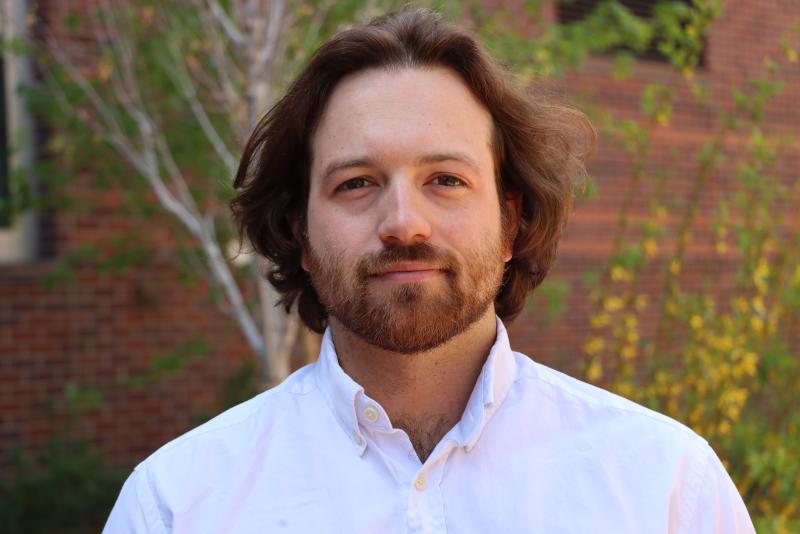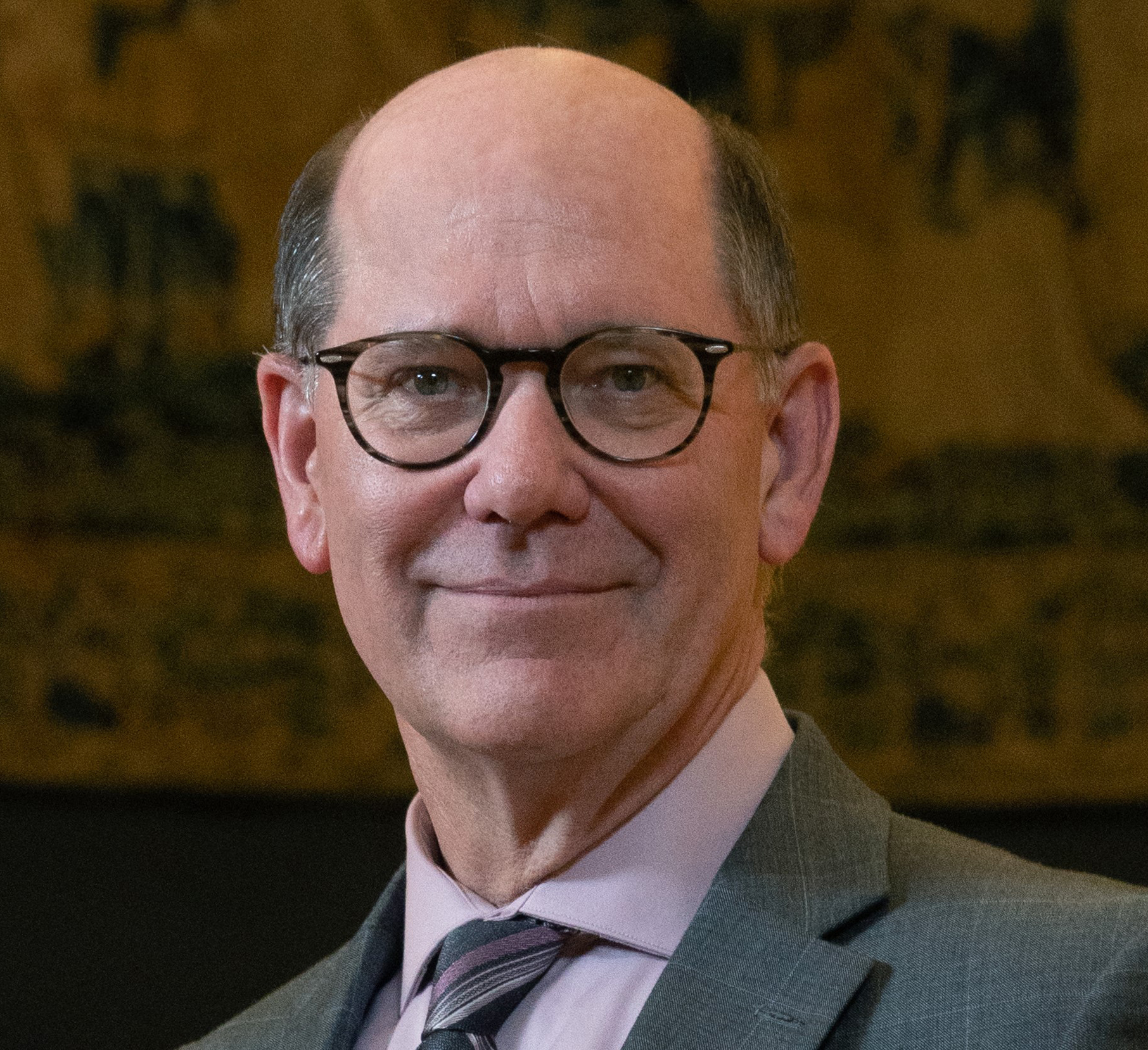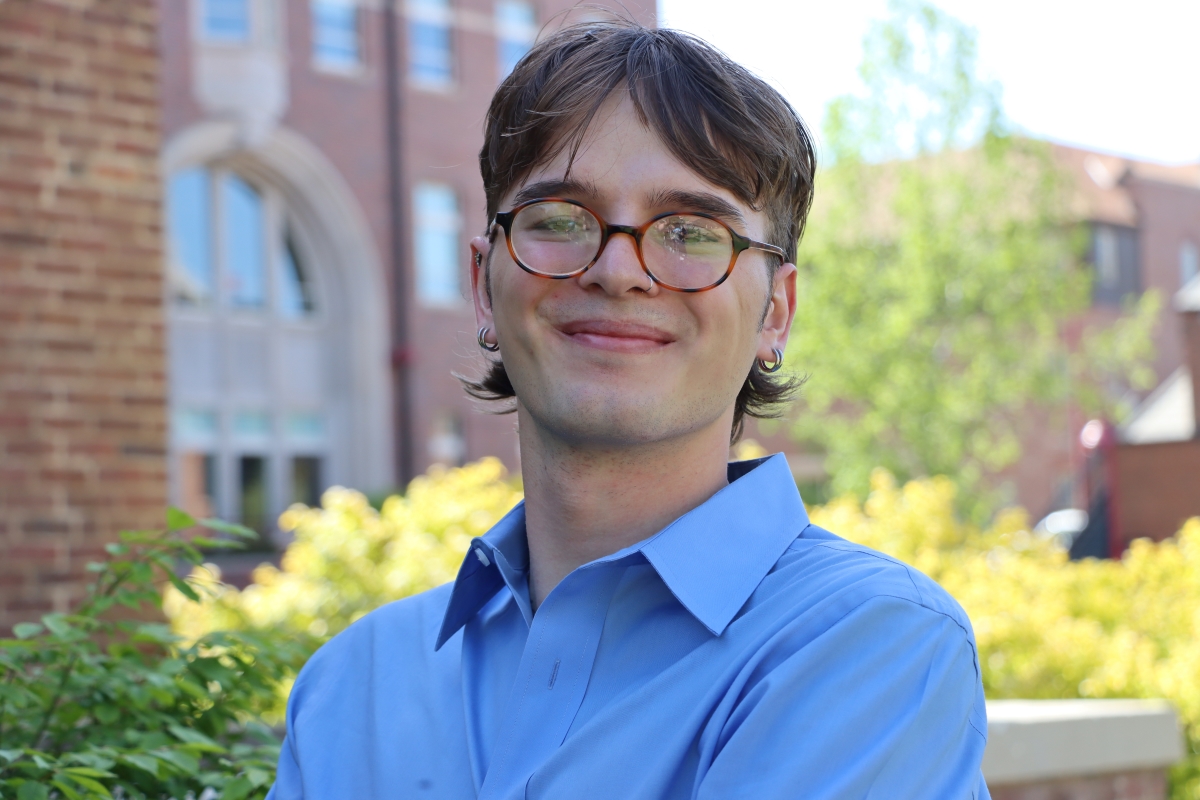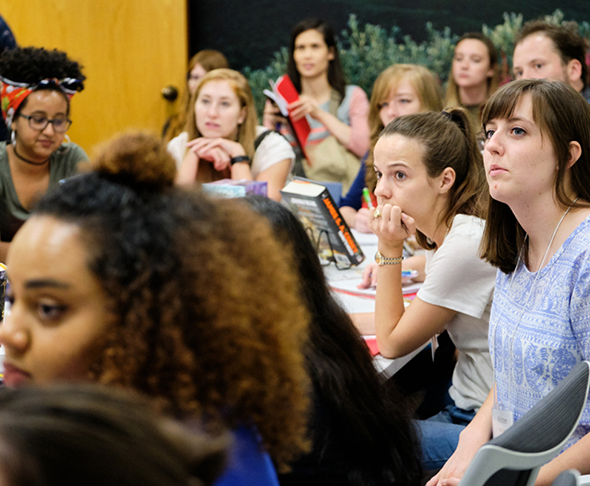International and Intercultural Communication Master’s Prepares Veteran for Career in International Journalism

When Jake Shriner graduated from the ROTC program at Loyola University as an infantry Army officer in 2018, he had no idea he’d soon find himself embroiled in historic world challenges.
Following eight months of training in Fort Benning, Georgia, he arrived in Germany in March 2020. “I was 23 and very excited to travel and then the pandemic hit,” he recalled. Shriner ended up working on efforts to obtain and distribute COVID-19 vaccines.
When Kabul fell in 2021, his orders shifted to deploying units to help evacuate Afghan refugees and when Russia invaded Ukraine in 2022, he served in a defensive security position on a Latvian Army base.
“I was in the back of a striker [a kind of tank on wheels] getting live updates as the Russian military started invading,” he recalled. “It was absolutely frightening and chaotic, but my unit operated effectively with NATO forces, working alongside the Latvians, Canadians, British and Italians.”
Today, Shriner stands on the threshold of graduating with a master’s degree in international and intercultural communication from the College of Arts, Humanities & Social Sciences (CAHSS) Department of Media, Film & Journalism Studies (MFJS). He credits his military experience with sparking a passion for capturing the stories of people enmeshed in conflicts around the world.
Although he’d originally intended to serve in the Army for 20 years and segue to working in special operations, following his assignment in Latvia, Shriner had a change of heart. “I took a hard look in the mirror and realized it wasn’t what I wanted to do for the rest of my life,” he said.
The epiphany left him at a crossroads. “I was 26 years old and had visited almost 20 countries,” he said. “I loved international travel, talking to all kinds of people and hearing their stories.” But more than anything else, he wanted to tell those stories and decided to pursue a career in journalism.
Having previously fallen hard for Colorado after visiting his undergraduate roommate who had relocated to Denver, Shriner started searching for graduate journalism programs statewide. A FaceTime interview with MFJS Professor and Emmy Award-winning Journalist Kareem El Damanhoury — who has covered international conflicts for CNN and PBS — made the decision to enroll in the International and Intercultural Communication master’s program easy.
Shriner left the Army in September 2023 after four-and-a-half years of service, flew from Munich to Denver and started in CAHSS two weeks later.
The mentorship he received from El Damanhoury, also his advisor, helped shape his academic trajectory. “We talked about how I wanted to see myself as a kind of Swiss Army Knife in journalism. At this point I don’t want to specialize in just one thing but become proficient in all aspects — print, audio, video and camera work. I think the broad range of classes I’ve taken in MFJS has been extremely helpful in preparing me for that.”
Shriner’s drive and dedication impressed El Damanhoury. "From day one, Jake has been laser-focused on having a career in journalism, particularly as a military correspondent,” he said. “And he has put in tremendous effort, producing content across modalities for the university's newsletter, the multimedia student outlet at MFJS and his portfolio. I can't wait to see him shine in the journalism industry."
Shriner cited El Damanhoury’s “Edutainment” class — aimed at teaching students how to use film to communicate and educate people about important public health topics — as one of his most helpful courses.
It taught him the ins and outs of producing visual storytelling, how to use a camera, shoot film properly and employ editing equipment. As part of the class, Shriner produced a film for the MFJS student media platform DU Media to raise awareness about the issue of veteran suicide. He also managed the award-winning platform, founded by El Damanhoury.
Shriner likewise credits Teaching Professor Rachael Liberman with teaching him about the business side of journalism, how news organizations operate and what to expect from working in a news station. An internship covering lifestyle stories for “Denver Life” magazine offered Shriner hands-on experience in the day-to-day workings of a print magazine.
As a reporter for "The Denver Clarion," the university’s student newspaper, Shriner honed his emerging skills in conflict reporting, covering the War in Ukraine and the War in Gaza. “I interviewed students campuswide and when the War in Gaza kicked off in 2023, talked to professors to get their insights on why these things were happening,” he said. “I do think my military experience really gave me an inside perspective, particularly related to the War in Ukraine.”
According to Shriner, when he started in the ROTC as an undergrad, the military’s “war on terror” was still in progress, but by 2022-23, “the way we fought war had dramatically transformed, especially in areas like Ukraine,” he noted.
“The concept of the battlefield had rapidly changed, and we went from believing there was no way there could be a full-scale invasion of Ukraine to a war being fought in the trenches that in many ways resembles what was happening in World War I. It made me very aware that warfare and people’s view of warfare is also changing.”
Shriner added that he likewise found parallels while working on the Clarion with his previous experience as an Army officer. “There’s a big emphasis in both roles on trying to efficiently, effectively and accurately communicate something to a wider audience and on being part of a team,” Shriner said. “I loved collaborating on stories with other people on the Clarion staff and am honestly more comfortable doing so than working solo.”
As he moves toward graduation, Shriner remains grateful for the GI Bill that covered the cost of his undergraduate degree and his additional time served in the Army that paid for 50% of his master’s program, while a teaching assistant scholarship further reduced the cost.
He’s thankful to all his MFJS professors who have supported him in finding his true calling and for the “exceptional level of mentorship that has helped me mature so much as a person over the last two years.”





